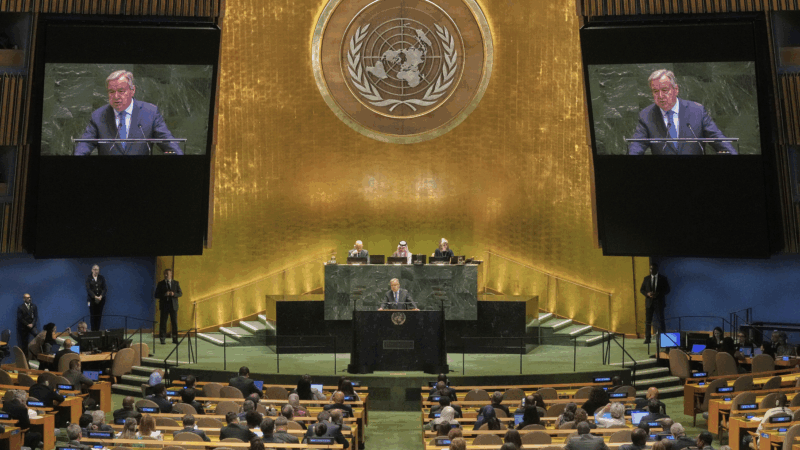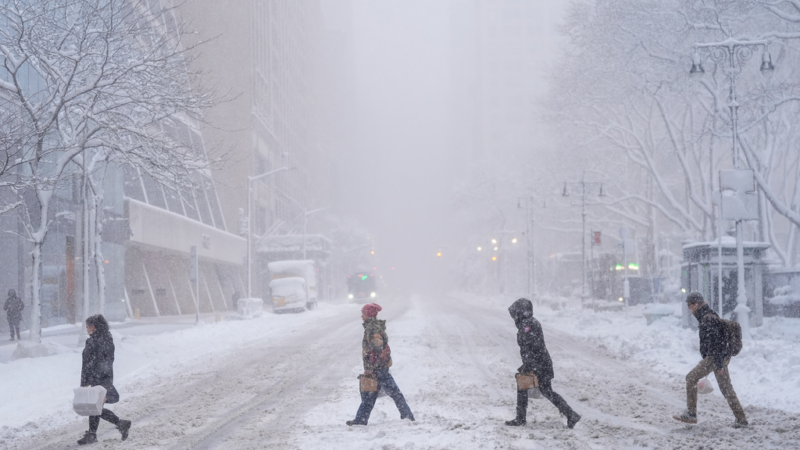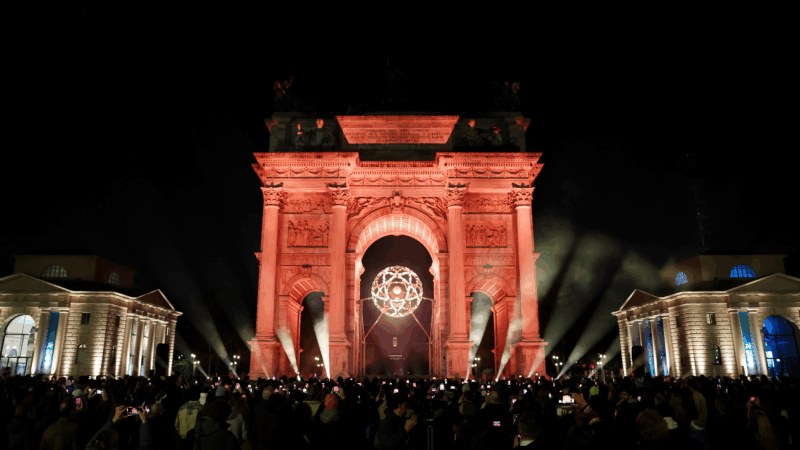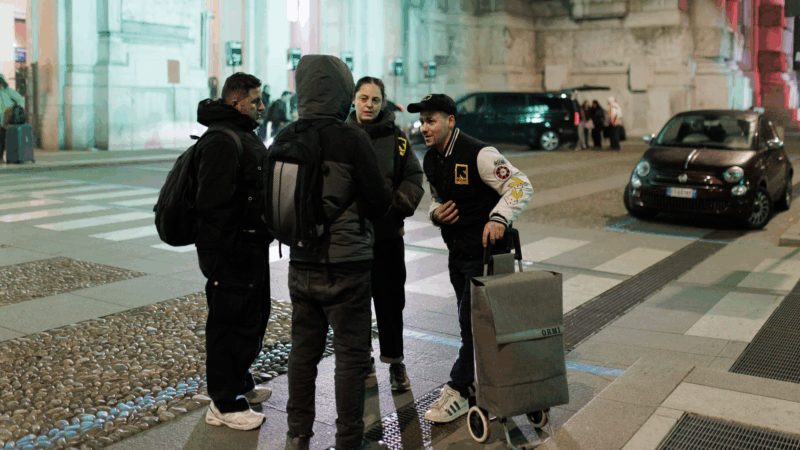What to know as U.N. General Assembly opens, marking 80 years, tackling deep crises
World leaders are preparing for their 15 minutes on the world stage as the United Nations General Assembly high-level week gets underway Tuesday in New York.
This year, the world body is marking its 80th anniversary, but diplomats don’t have much to celebrate. The U.N. Security Council has been deadlocked over Russia’s war against Ukraine and Israel’s war against Hamas in Gaza. The United Nations itself is facing financial cutbacks, largely from the United States.
Here are a few of the things that we will be watching.
Is the U.N. fit for purpose in the 21st century?
That was expected to be one of the big themes of the 80th U.N. General Assembly, as the world body struggles to promote peace in a way that was envisioned 80 years ago. But many diplomats are worried about more mundane things, like a financial crisis, and how the U.N. will survive a second Trump administration.
The U.N.’s top humanitarian and emergency relief official Tom Fletcher says the U.N. system is facing “this perfect strom: underfunded, overstretched and under attack.” It has lost 40% of its funding since last year and aid workers have been killed in record numbers, mostly in Gaza.
President Trump has cut funding and pulled the U.S. out of the World Health Organization and UNESCO. His administration rejects the U.N.’s Sustainable Development Goals — guideposts for ending scourges such as poverty and hunger — and votes against any resolution that mentions them.
“The U.S. is behaving in an incredibly petty way,” says Richard Gowan, the U.N. director for the International Crisis Group, a think tank.
Anjali Dayal, an expert on the U.N. who teaches at Fordham University, says the U.S. has gone from a key underwriter to a real source of instability at the U.N.
“From top to bottom, huge arenas of the U.N.’s work — things like poverty alleviation, things like public health, things like gender equality, things that fundamentally anchor the U.N.’s work — the U.S. is actively working to disrupt them,” Dayal told NPR.
Palestinian recognition
Australia, Canada and the United Kingdom on Sunday formally recognized a state of Palestine, joining a majority of countries that have already done so, in a move opposed by the United States and Israel. Earlier this month, 142 nations endorsed a U.N. General Assembly resolution calling for “tangible, timebound, and irreversible steps” toward a two-state solution to the Israeli-Palestinian conflict.
The Trump administration has denounced the move and vowed not to give visas for members of the Palestinian Authority to attend the conference. The UNGA voted last week to allow Palestinian Authority President Mahmoud Abbas to deliver his address via video on Thursday. Members of the Palestinian mission to the U.N., however, are expected to attend the General Assembly in person.
Secretary of State Marco Rubio called the move to recognize Palestinian statehood “symbolic” and said it had “no impact whatsoever in bringing us any closer to a Palestinian state.” He argued that it is making negotiations more complicated and emboldening Hamas. Rubio said he also warned European allies that this could lead to an Israeli “counterreaction.” He made the comments on a trip to Israel on Sept. 15, just days after an Israeli strike on Hamas officials in Qatar.
Israel also views the movement to recognize Palestinian statehood now as a gift to Hamas, though U.N. Secretary-General António Guterres disagrees, saying it is a “gift to the Palestinian people that has suffered also a lot because Hamas.”
End of Syrian isolation
Syria’s interim president, Ahmed al-Sharaa, is expected to make his debut on the world stage with a U.N. General Assembly address Wednesday, though the Islamist group he led, Hayat Tahrir al-Sham, remains on a U.N. terrorist blacklist. His presence will officially mark the end of decades of Syrian diplomatic isolation.
The Trump administration lifted a $10 million bounty on his head and President Trump has called him an “attractive, tough guy.” Democratic Sen. Jeanne Shaheen of New Hampshire recently traveled to Syria along with House Republican Joe Wilson of South Carolina to meet Sharaa and talk about lifting U.S. sanctions, which have already been temporarily eased by President Trump.
Shaheen called this a historic opportunity for Syria after years of dictatorship under the Assad regime. “It’s a nascent central government and I think it’s important for us to do everything we can to ensure that the government continues to move forward in a positive way,” she told NPR.
Israel has been far more skeptical. “When they [the Israelis] look at him [Sharaa], they see his past, not a future. And they’re going to take their own security measures in their own hands,” says David Hale, a former top State Department official who is now a distinguished diplomatic fellow at the think tank the Middle East Institute.
Sharaa’s address Wednesday will be the first speech by a Syrian leader to the U.N. General Assembly since 1967, according to the Syrian state news agency SANA.
China’s rising influence
As the U.S. cuts funding for U.N. agencies and leaves some of them, experts say China is moving in — but not financially. “China is not going to come forward with the sort of large-scale financial support that the U.S. is now taking away,” says Gowan of the International Crisis Group. “The Chinese don’t really need to do that. They are just gaining influence by default because the U.S. is not in the room.”
Chinese leader Xi Jinping has rarely attended the UNGA, though he spoke via video during the COVID-19 pandemic, as other leaders did. This month, China will be represented by Premier Li Qianq, who is slated to speak on Friday. Russian President Vladimir Putin also avoids UNGA, sending his longtime Foreign Minister Sergey Lavrov.
Thant Myint-U, whose grandfather, Burmese diplomat U Thant, was U.N. secretary-general during the Cold War, told NPR the U.N. is facing a “crisis of irrelevance,” and not just because of President Trump. “Even countries that kind of pay lip service to the U.N. aren’t really doing very much in terms of investing in the U.N. politically,” he said.
Trump’s quest for the Nobel

Though Trump has cut funding for the U.N. and dismantled the lead U.S. aid agency, he has been promoting himself for a Nobel Peace Prize and is likely to continue that pitch when he takes the podium on Tuesday. His speech will follow Brazilian President Luiz Inácio Lula da Silva. By tradition, Brazil speaks first.
By Trump’s account, he has solved seven wars, including a devastating and complicated decades-old conflict in the eastern part of the Democratic Republic of the Congo. “Actually, if you think about pre-wars, add three more, so it would be 10,” he told journalists in the Oval Office last month. (Fact-checkers dispute the claim.)
Leaders of Rwanda and DRC will be at the U.N. General Assembly and both have praised Trump for focusing on the issue. However, there is still fighting and the conflict is far from over.
Leaders of the former Soviet republics of Armenia and Azerbaijan will also be in attendance. Azerbaijan seized the Armenian enclave of Nagorno-Karabakh in 2023, before Trump returned to office. The White House says he achieved a deal on a route from Azerbaijan to its Nakhchivan exclave that borders Turkey. They are calling it the Trump Route for International Peace and Prosperity (TRIPP).
Trump has had a harder time bringing about peace in Gaza and Ukraine, conflicts he had told voters he would be able to resolve in 24 hours.
Secretary-General Guterres said in a news conference this week the U.N. General Assembly will bring nearly 150 heads of state and government to U.N. headquarters, “offering every possibility for dialogue and mediation.” The high-level week wraps up on Sept. 29.
“Some call it the World Cup of diplomacy, but this cannot be about scoring points — it must be about solving problems,” Guterres said.
Kate Hudson on regret, rom-coms and finding a role that hits all the notes
Hudson always wanted to sing, but feared it would derail her acting career. Now she's up for an Oscar for her portrayal of a hairdresser who performs in a Neil Diamond tribute band in Song Sung Blue.
A powerful winter storm is roiling travel across the northeastern U.S.
Forecasters called travel conditions "extremely treacherous" and "nearly impossible" in areas hit hardest by the storm, and air and train traffic is at a standstill in many parts of the region.
U.K. arrests ex-ambassador to the U.S. on suspicion of misconduct over Epstein ties
Police have arrested Peter Mandelson, a veteran Labour Party politician who served as British ambassador to the U.S., as part of an investigation into his ties with Jeffrey Epstein.
What NPR reporters will remember most about these Winter Olympics
NPR's reporters on the ground in Italy reflect on a far-flung, jam-packed Winter Olympics.
In the shadow of the Olympics, migrants search for a welcome in Milan
As Italy cracks down on migration, Milan takes a different path — offering shelter and integration to asylum seekers even as the central government tightens borders and funds deterrence abroad.
Trump to raise global tariffs. And, most say the state of the union is weak, poll says
President Trump says he is raising global tariffs to 15%. And ahead of the president's address tomorrow, most Americans say the state of the union is not strong, according to an NPR poll.







